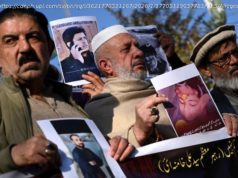The US territory votes in a non-binding referendum on its future legal status.
The US territory of Puerto Rico is holding a non-binding referendum on the legal status of the Caribbean island.
Voters are being asked if they would like Puerto Rico to be the 51st state of the United States, to become fully independent or to remain a self-governing US territory as it is now.
The referendum was called by the government of the island against a background of economic crisis, which some attribute at least partially to Puerto Rico’s unusual legal status, halfway between independence and full statehood.
However, even if voters chose to move away from the current status quo, the final decision is not in their hands, but must be taken by the US Congress.
No. Referendums were held in 1967,1993,1998 and 2012. In the non-binding referendum held in 2012, for the first time ever a majority of valid votes were cast for statehood.
But close to 30% of all voters in that election cast blank or invalid ballots, a situation which generated doubts about the vote’s political legitimacy.
The US Congress did not act on the referendum’s result.
The current governor of Puerto Rico, Ricardo («Ricky») Rossello, who was sworn in last 2 January, campaigned on a promise of seeking full statehood for the island, which he says is needed to solve the current economic recession affecting Puerto Rico, the worst in decades.
The economic crisis has led to large government deficits, a severe cutback in public services, an increase in local utility rates and sales taxes as well as ongoing protests against local and federal authorities, which are expected to continue.
The island’s government says it cannot meet all of its $72bn debt obligations. Statehood advocates point out that while US laws have allowed other heavily indebted US local governments to seek bankruptcy protection, Puerto Rico has fewer means of legal defence because it is not a US state.
Proponents of statehood also argue that if it became fully integrated into the Union, Puerto Rico would receive more federal spending to reactivate the economy, which currently has an unemployment rate close to 12%.
All Puerto Ricans are already US citizens, with unrestricted rights to settle on the US mainland. But if they obtained statehood, Puerto Ricans living on the island would for the first time be able to vote in US presidential elections, and would elect lawmakers with the right to vote in the US Congress.
Puerto Ricans would also become eligible for the full welfare benefits currently available to US citizens living in the 50 states.
On the other hand, Puerto Ricans on the island would have to start paying full federal income taxes. They currently do not pay US income taxes on earnings obtained on the island.
The government of Puerto Rico would boast of having a strong popular mandate to formally request admission into the Union as a full state.
But the US Congress would have the final say, and few expect current US lawmakers to be very enthusiastic about eventual statehood for Puerto Rico.
One big reason is that the Republican-controlled US Congress might be wary of a move that could erode their majority in both houses by allowing the Democratic-leaning Puerto Rican electorate to choose two new senators and several members of the House of Representatives.
Also, granting Puerto Rico statehood would lead to greater federal spending on the island, which could prove unpopular at a time when the Republican majority in Congress is calling for sweeping spending cuts.
Puerto Rico would be the poorest state in the Union, with many of its residents becoming eligible for greater federal welfare payments.
Puerto Rico has had an active pro-independence movement for decades, which insists that the Spanish-speaking island should be a Latin American nation, not a US territory.
However, in past referendums on the issue, voters have been sceptical of proposals to severe all ties to the US. In the last referendum, held in 2012, only 5% voted in favour of full independence.
Source: BBC Monitoring






